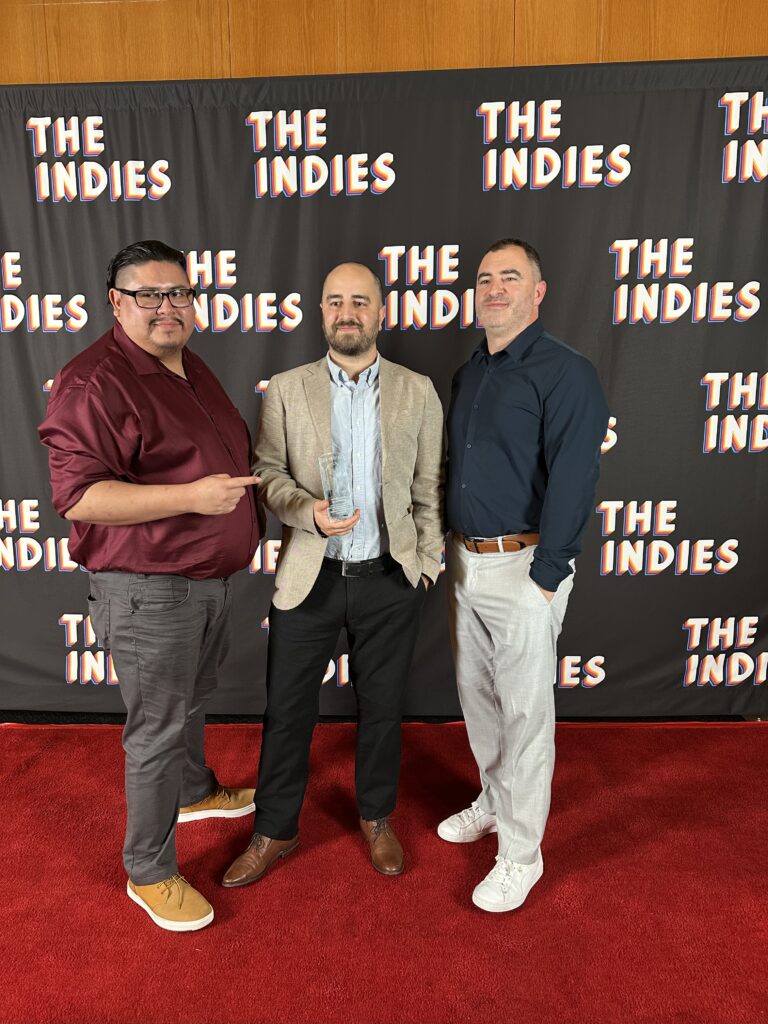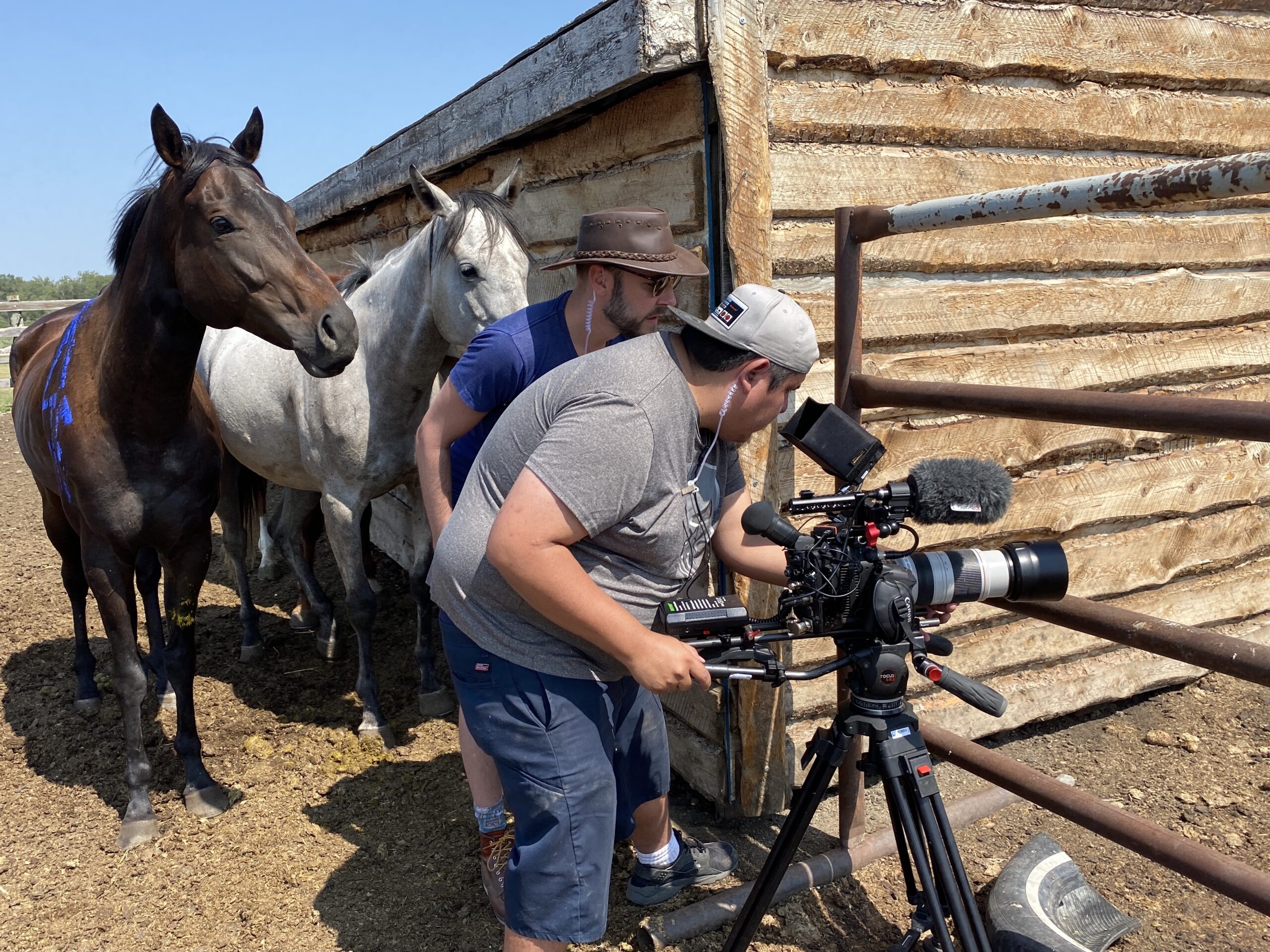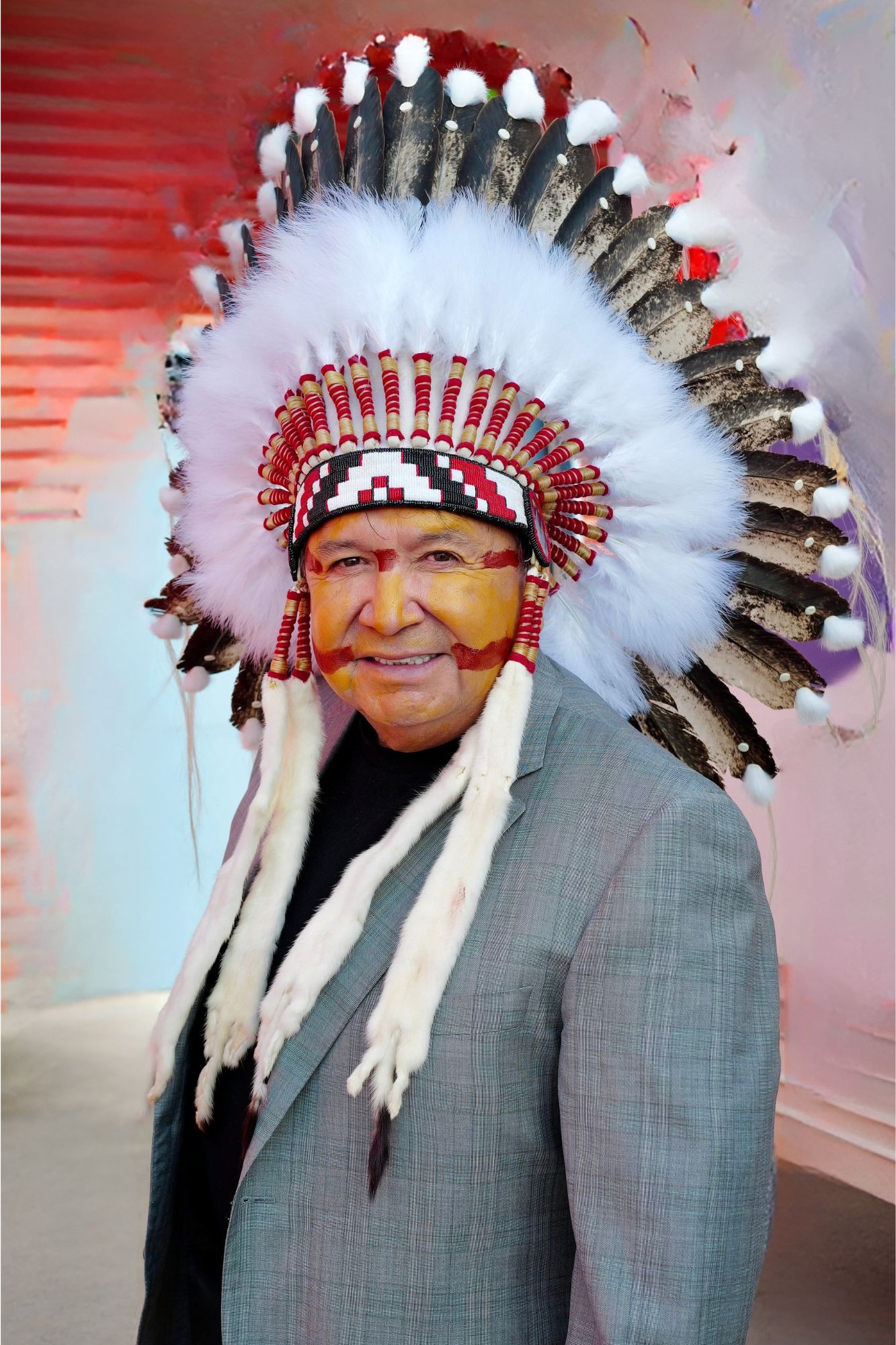By Jasmine Majoros
Aitamaako’Tamisskapi Natosi: Before the Sun is a film documentary that follows alongside Logan Red Crow’s journey as a woman relay racer. This journey showcases her accomplishments in this dangerous sport that stems from Blackfoot roots and a close bond with her family. A British Columbia Production, the idea was first pitched in 2019 by the film’s executive director, Izzy Pullen. Pullen, who took an interest in relay racing, noticed that there was a lack of focus on the female riders. A short time later she met Red Crow, and their connection came quite naturally. The film’s production began in 2020/2021, but it was shortly stalled due to the covid pandemic but was picked up again as soon as it was safe to do so. Much of the filming took place in Siksika and Enoch, Alberta, except a bit of b-roll from Wyoming.
The film then first premiered towards the end of 2023 on Paramount and Telus; since then, it came into the industry with flying colours and went on to appear in many film festivals that year. Today it’s still making its waves, even winning a few awards along the way. Most recently, on December 9th, 2024, the crew travelled to The Indies Awards in Los Angeles to accept an award for “2024 Outstanding Cinematography.” In attendance for this award were producer Mike Wavrecan, cinematographer Ben Giesbrecht, and camera assistants Josh Many Heads and Calvin Stimson.
These opportunities don’t come by often and are said to be a tough industry to break into, but once those doors begin to open, there are no limits to what the industry has to offer. Like Josh Many Heads, who had the privilege of being a part of the production and the trip to L.A. to accept the award. With indigenous films like this making a great impact in all communities across the board, there’s no denying that being a part of these projects is truly an opportunity of a lifetime. “Just to be there again after a decade, it just gave me a good feeling; it gave me a fresh perspective. Just to keep working in this industry, to keep working on indigenous narratives, because you never know, stuff like this can happen. – Josh Many Heads.







